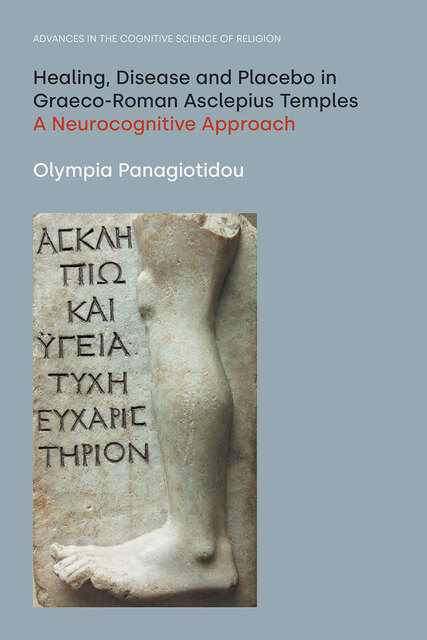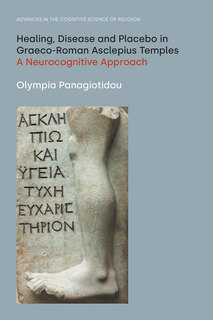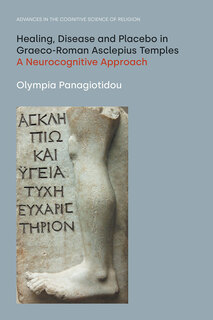LIBRARY COLLECTIONS
Ancient Worlds
Complete Collection
Theory, Method & Special Topics
ACCESS
Authorized users can access the eBook using institutional credentials or personal password via the Read Online tab.
Healing, Disease and Placebo in Graeco-Roman Asclepius Temples
A Neurocognitive Approach
This book narrates a story of religious healing that took place at sanctuaries dedicated to the ancient Greek god Asclepius, the so called asclepieia. The Asclepius cult, which attracted supplicants afflicted by various illnesses, appeared in Greece in the sixth century BCE, thrived in the Hellenistic period and spread throughout the Graeco-Roman world only declining during the final dominance of Christianity in the fifth century CE.
This study analyses inscriptions from the asclepieia which were supposed to record personal stories of healing. Using the archaeological and historical evidence it looks at the placebo effect and the role it may have played in healing at the Asclepius sanctuaries in light of contemporary theories and neurocognitive research on placebo effects. It explores the specific biological, cognitive, and psychological processes as well as the external cultural and social influences that would have shaped personal healing experiences.
It is the first historical study of the Asclepius cult which integrates theoretical insights into the human mind provided by neurocognitive sciences. It can be considered a cognitive historiography of patients who visited the asclepieia as supplicants which aims to deepen our understanding of past minds and, more generally, of human cognition.

ISBN-13 (Hardback) 9781800501416
Price (Hardback) £75.00 / $100.00
ISBN-13 (Paperback) 9781800501423
Price (Paperback) £24.95 / $32.00
ISBN (eBook) 9781800501430
Price (eBook) Individual £24.95 / $32.00
Institutional £75.00 / $100.00
Publication 08/03/2022
Pages 228
Size 234 x 156mm
Readership scholars
Illustration 10 figures
Author Information
Author Information
- This text has 0 annotations
- This text has 0 highlights
Book Information
- This text has 0 annotations
- This text has 0 highlights
Metadata
- isbn9781800501416 (Hardback)
9781800501423 (Paperback)
9781800501430 (eBook) - publisherEquinox Publishing Ltd., 2022
- publisher placeSheffield (U.K.)
- series titleAdvances in the Cognitive Science of Religion
- doi
We use cookies to analyze our traffic. Please decide if you are willing to accept cookies from our website. You can change this setting anytime in Privacy Settings.


